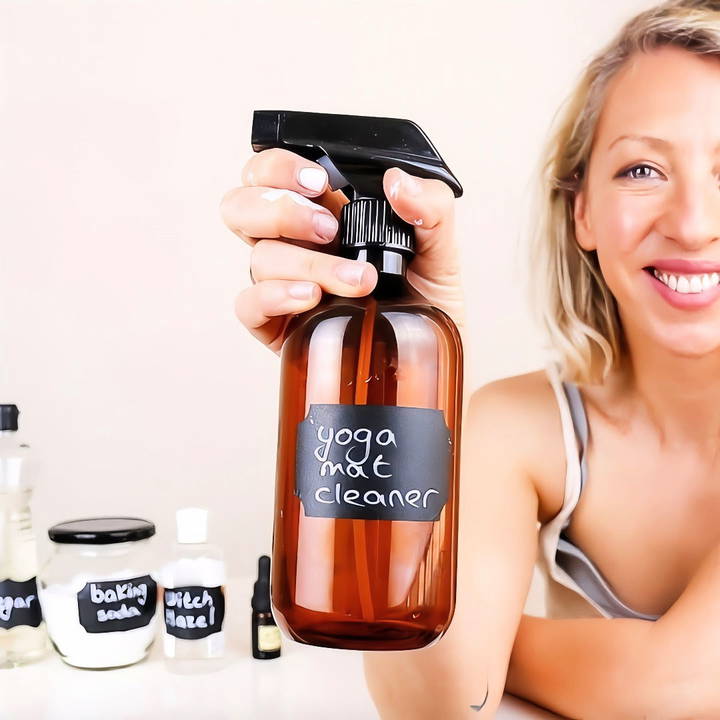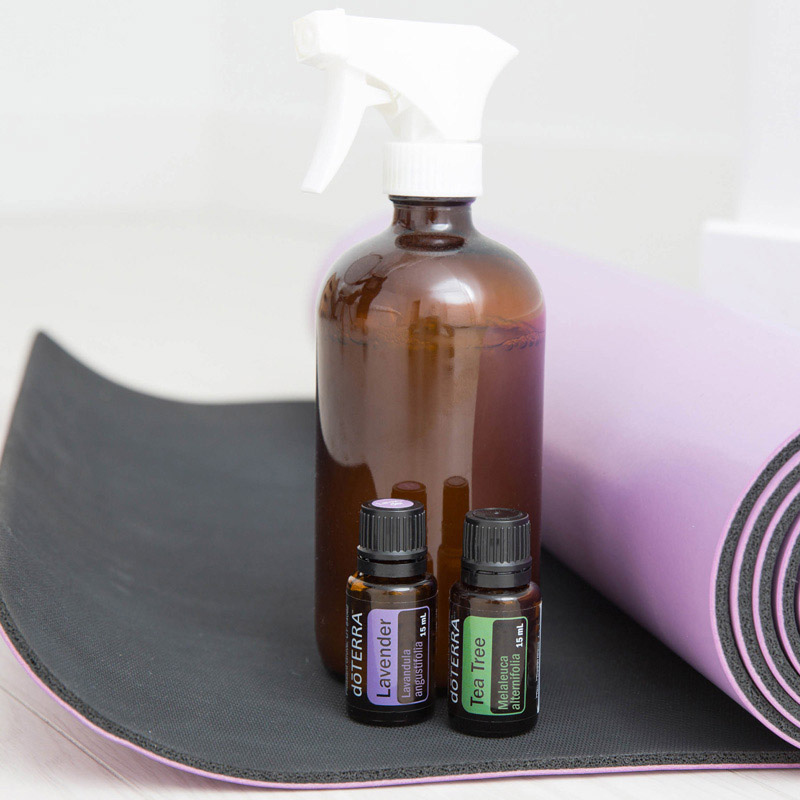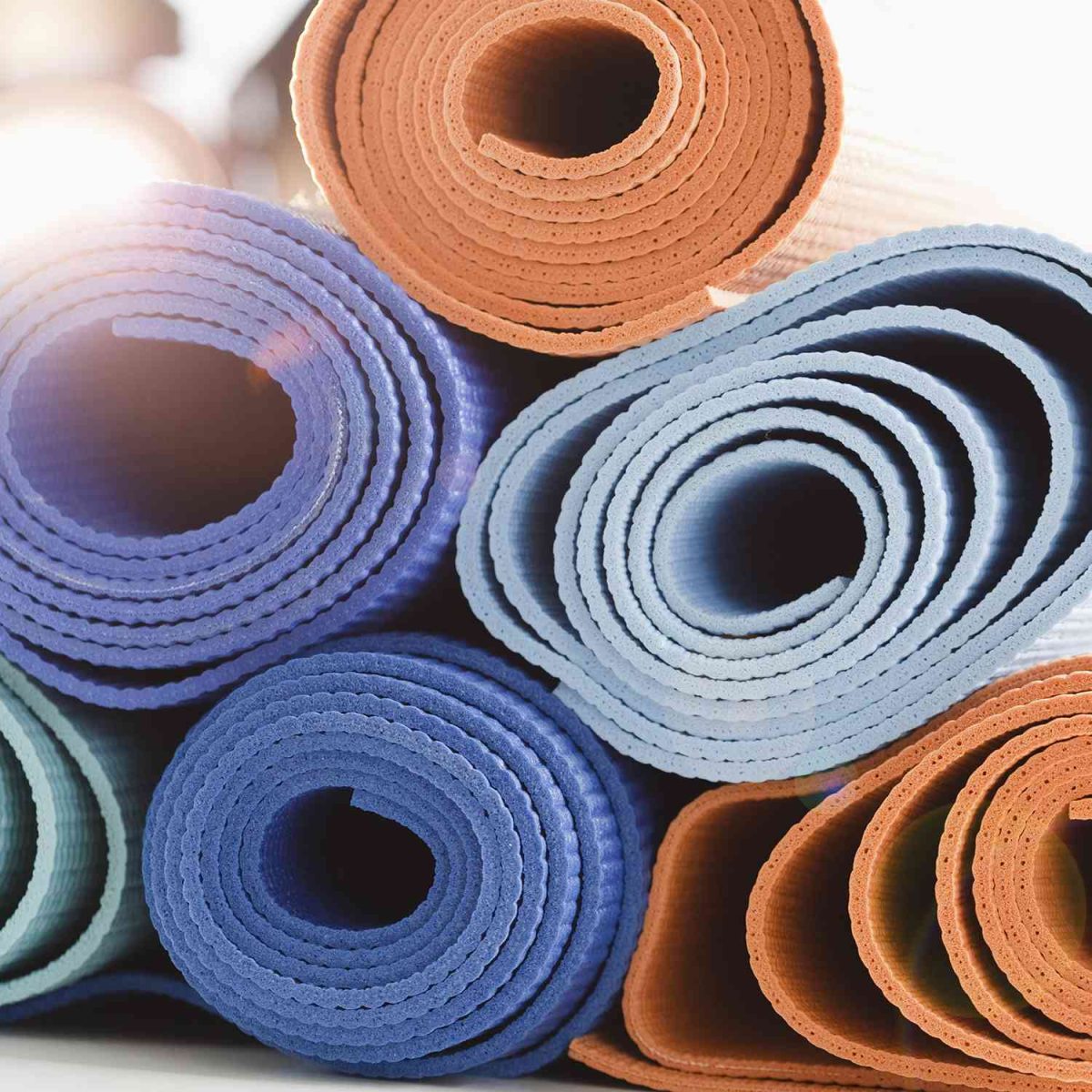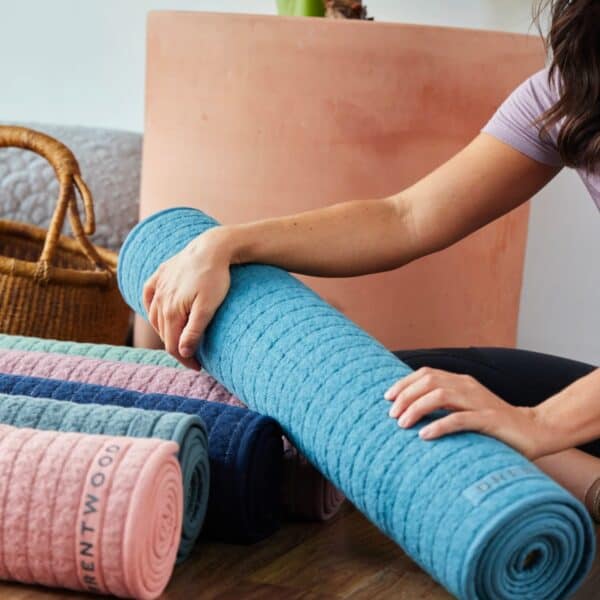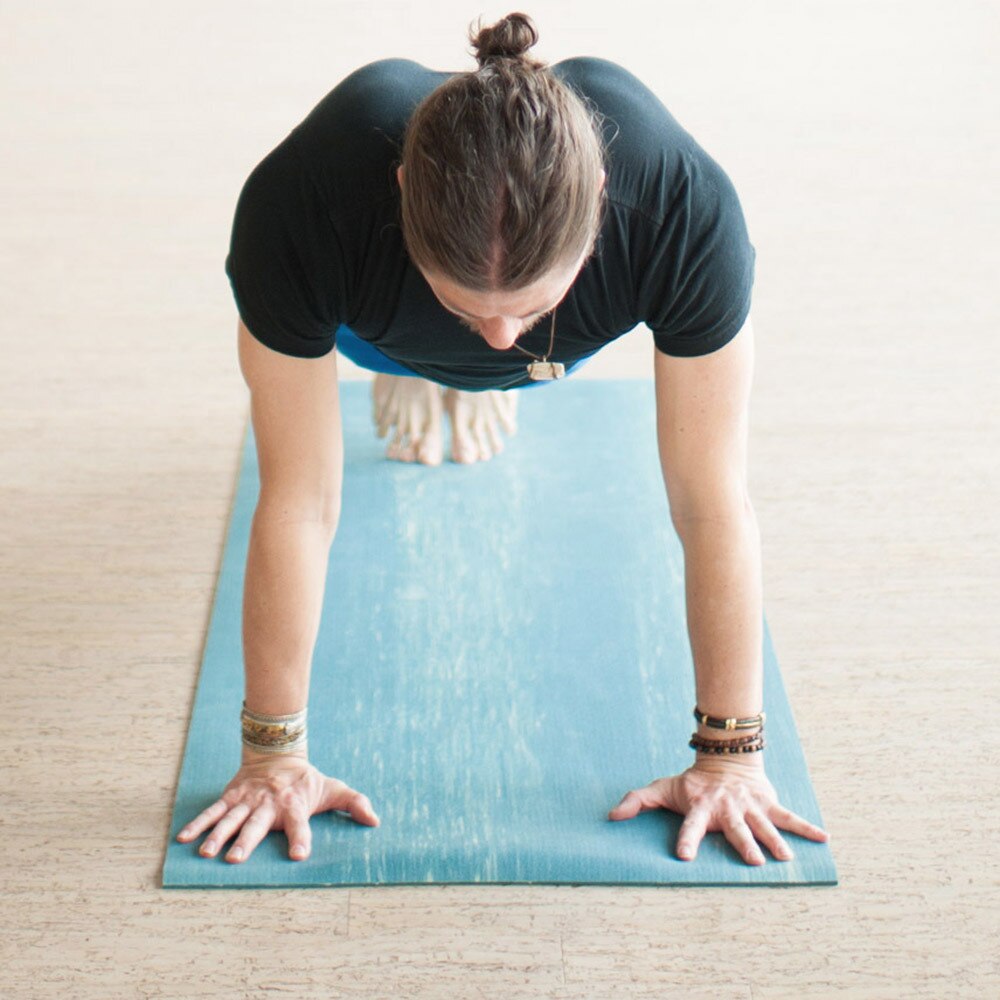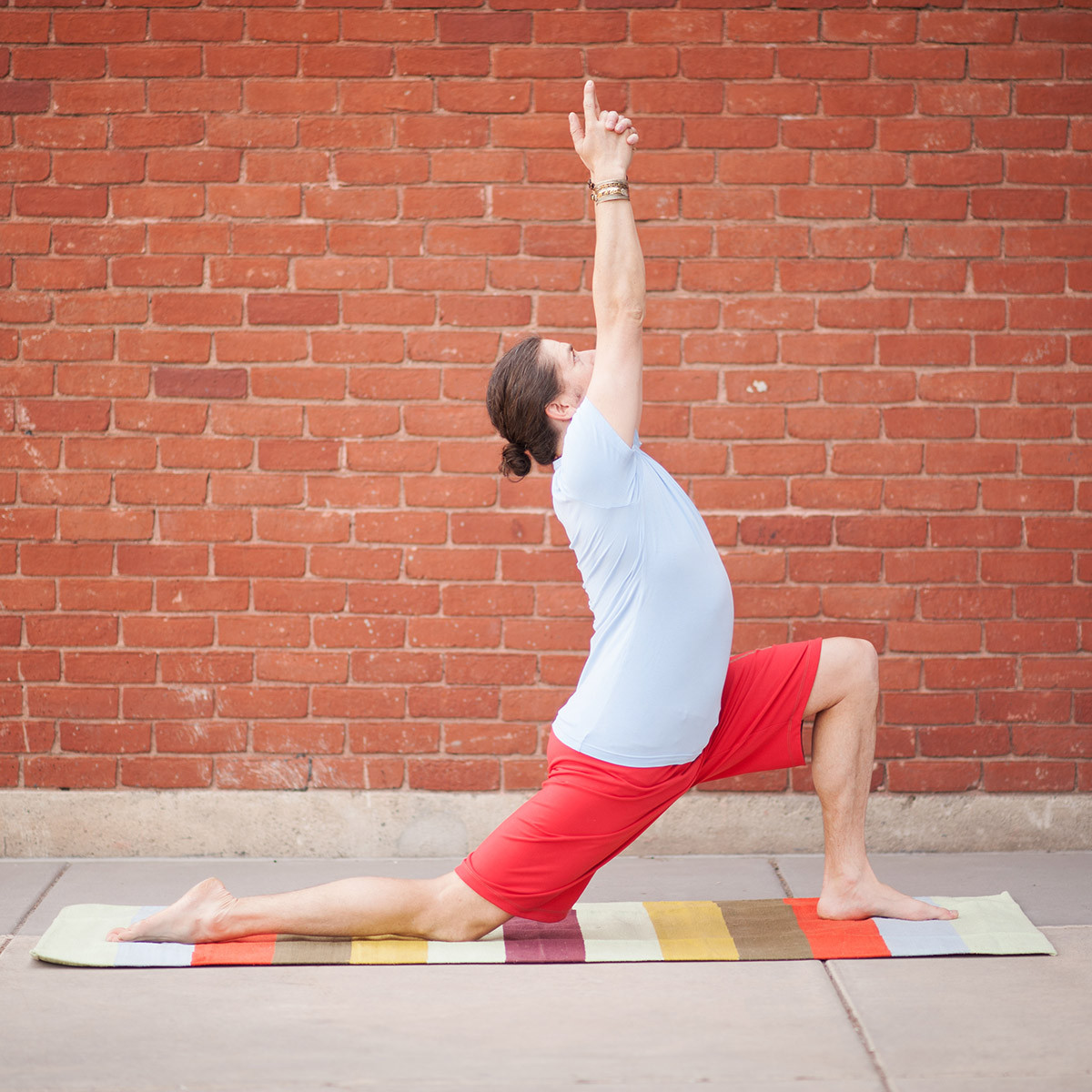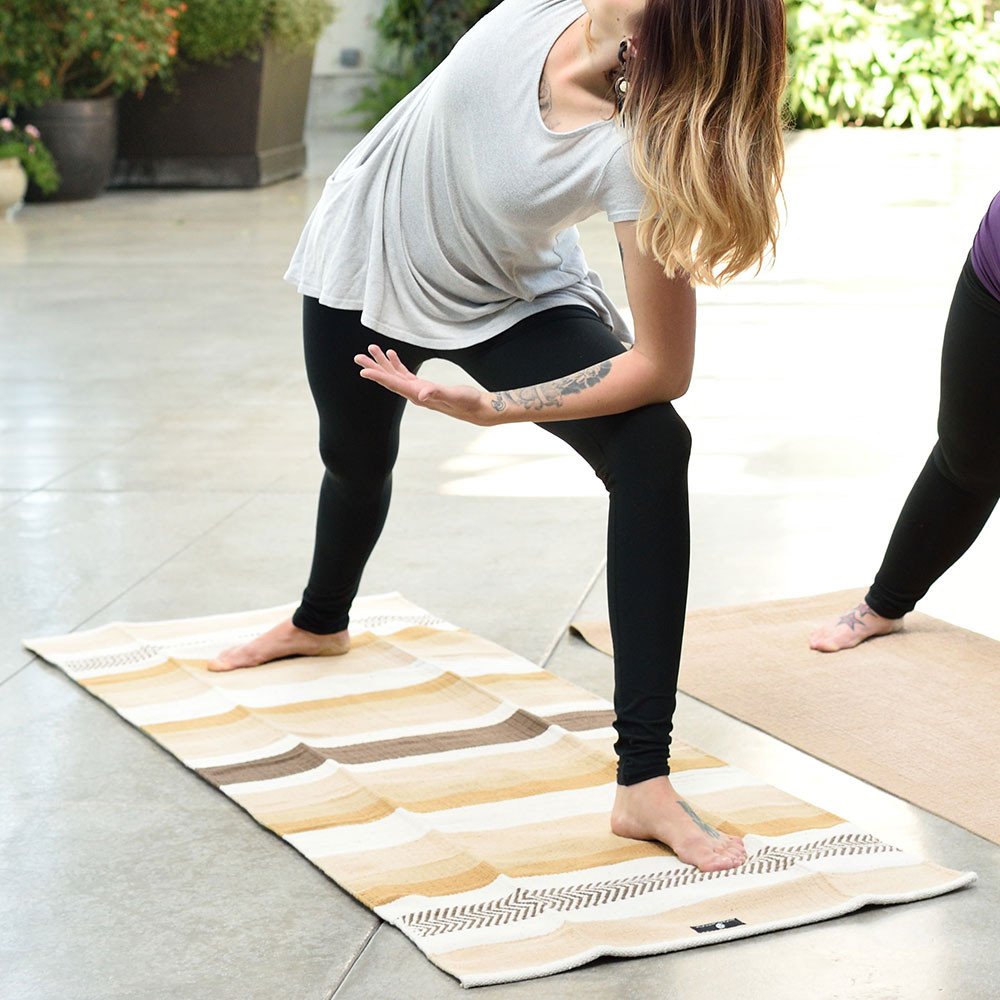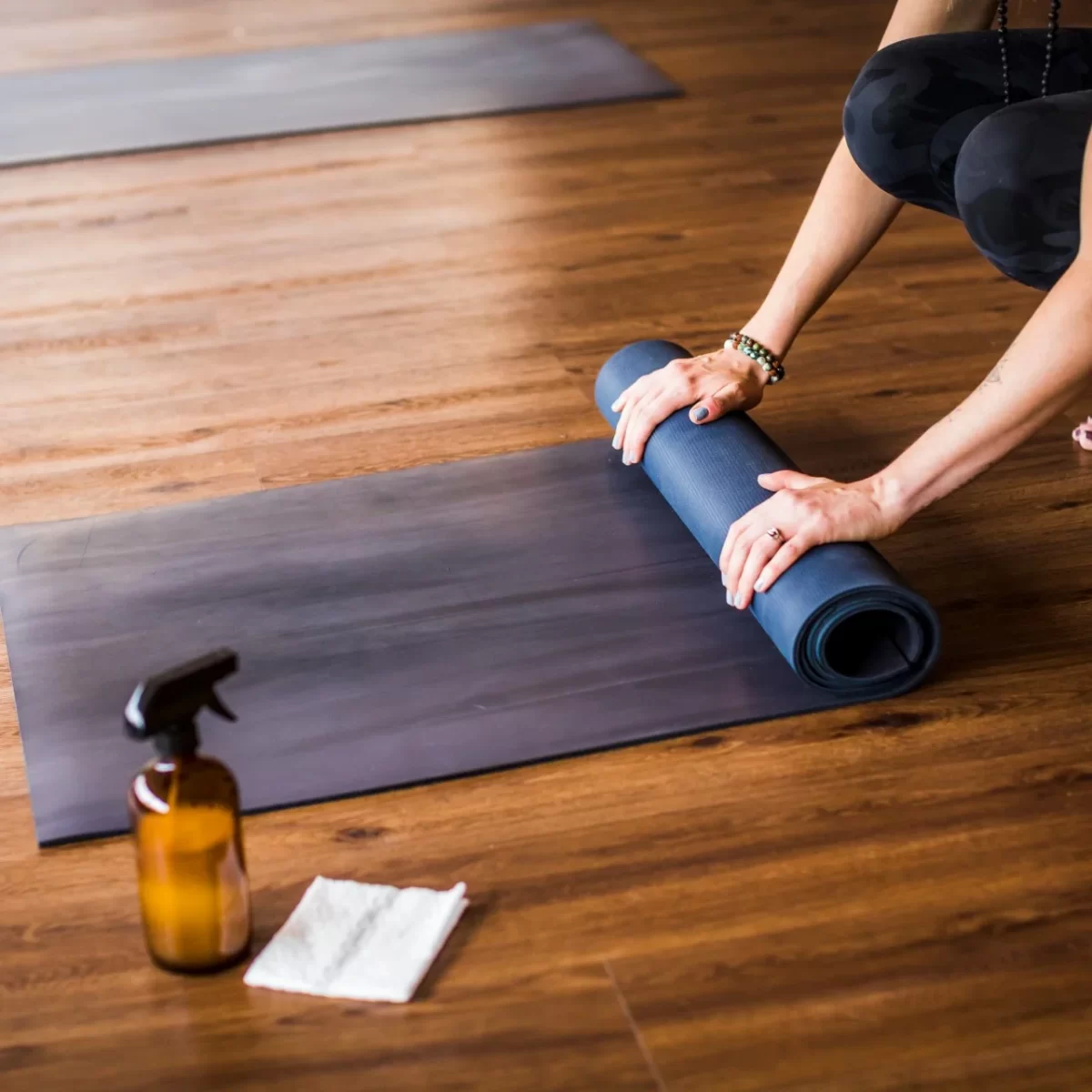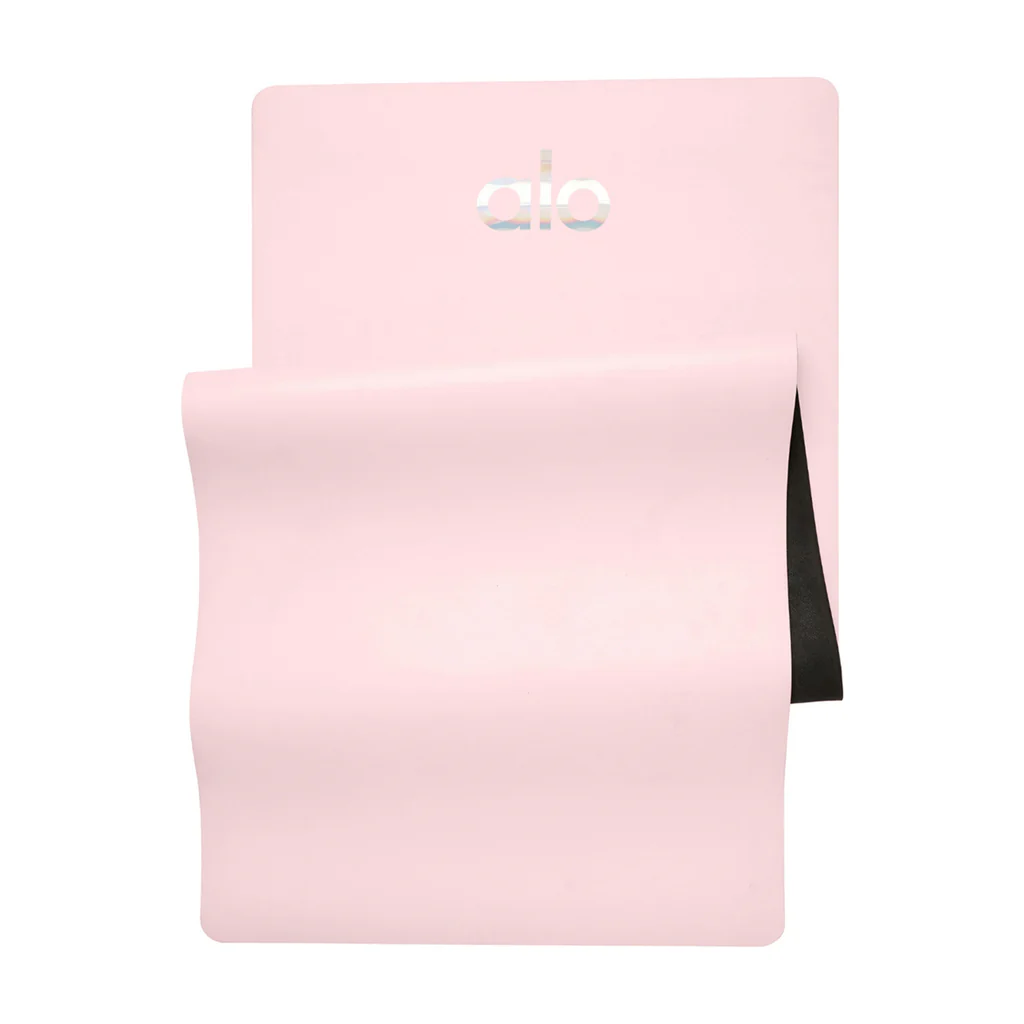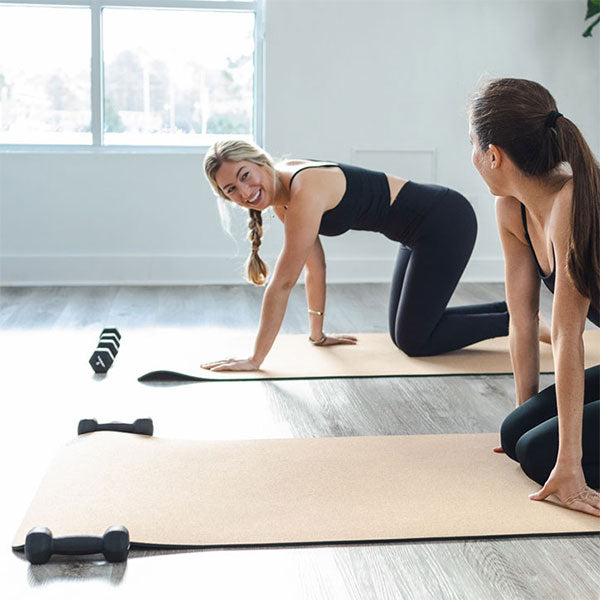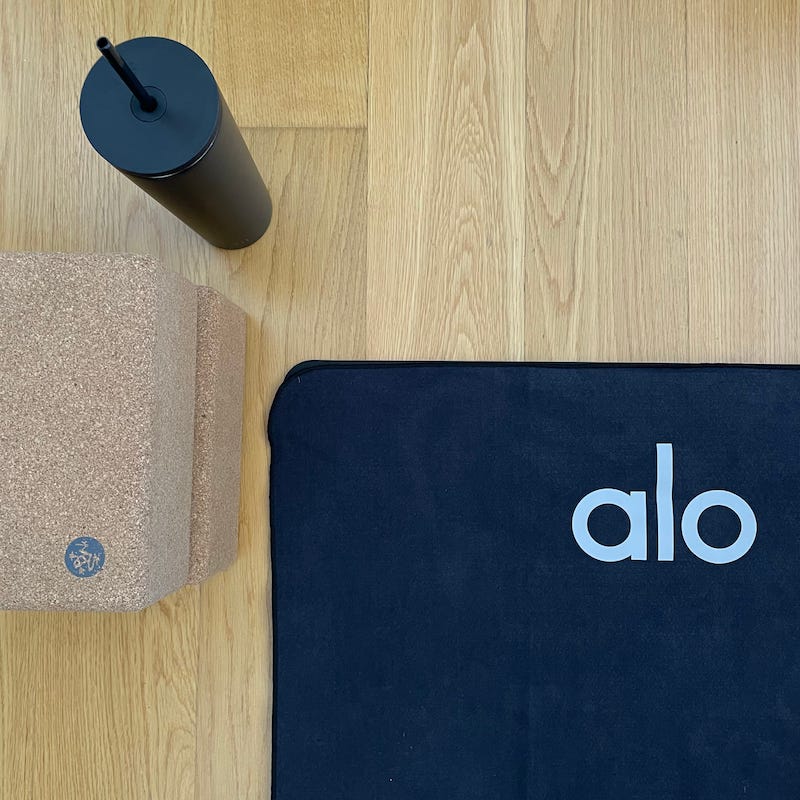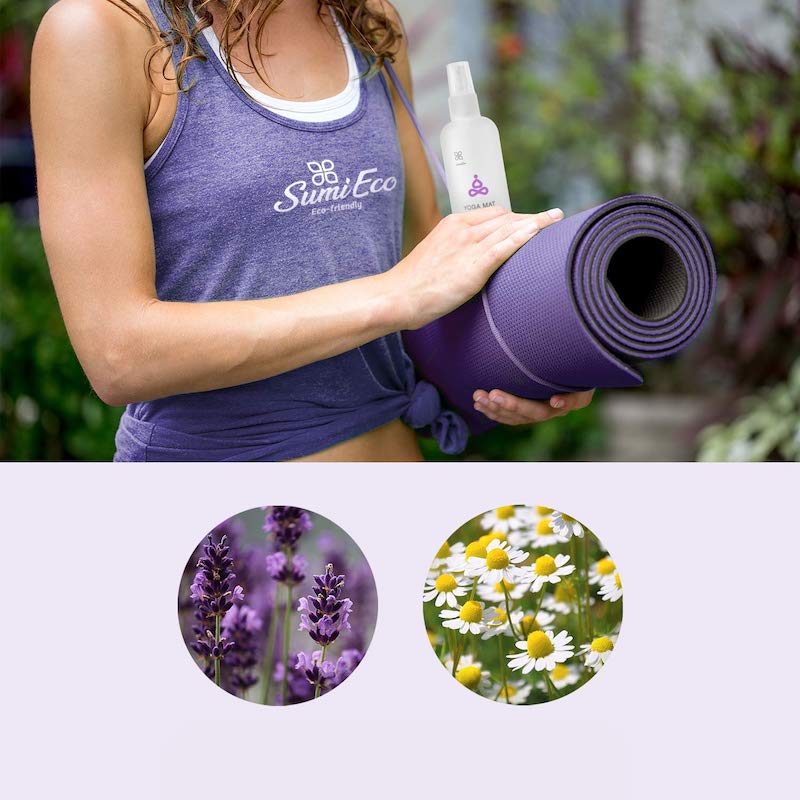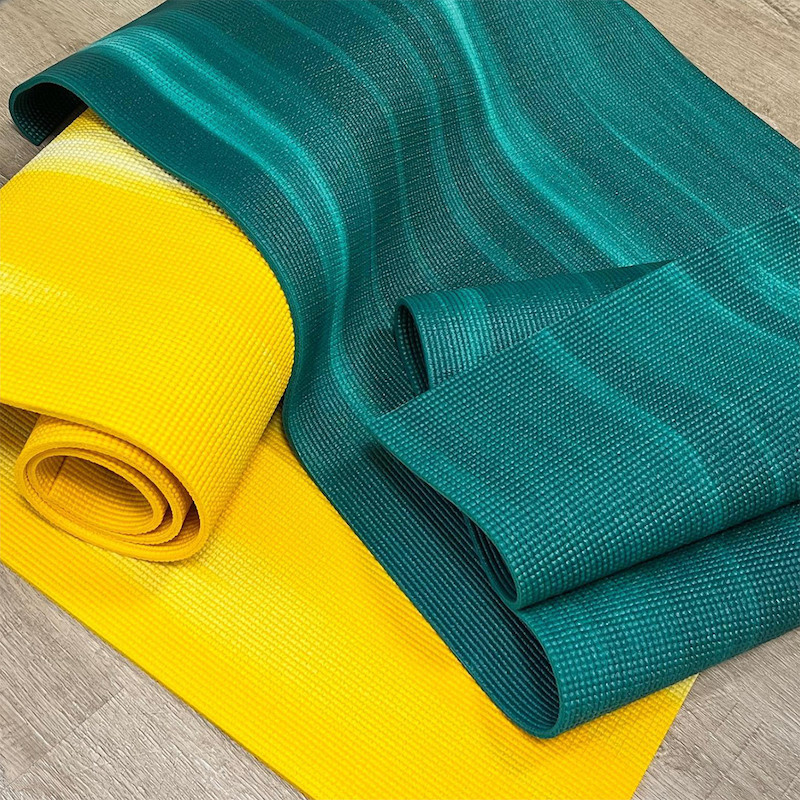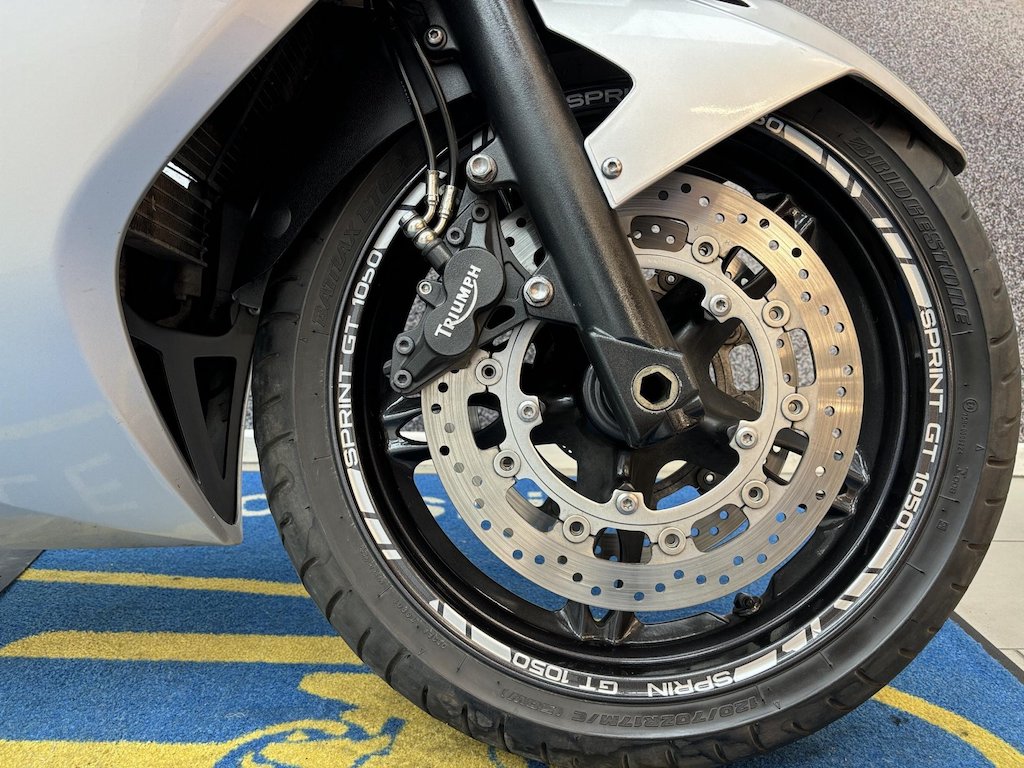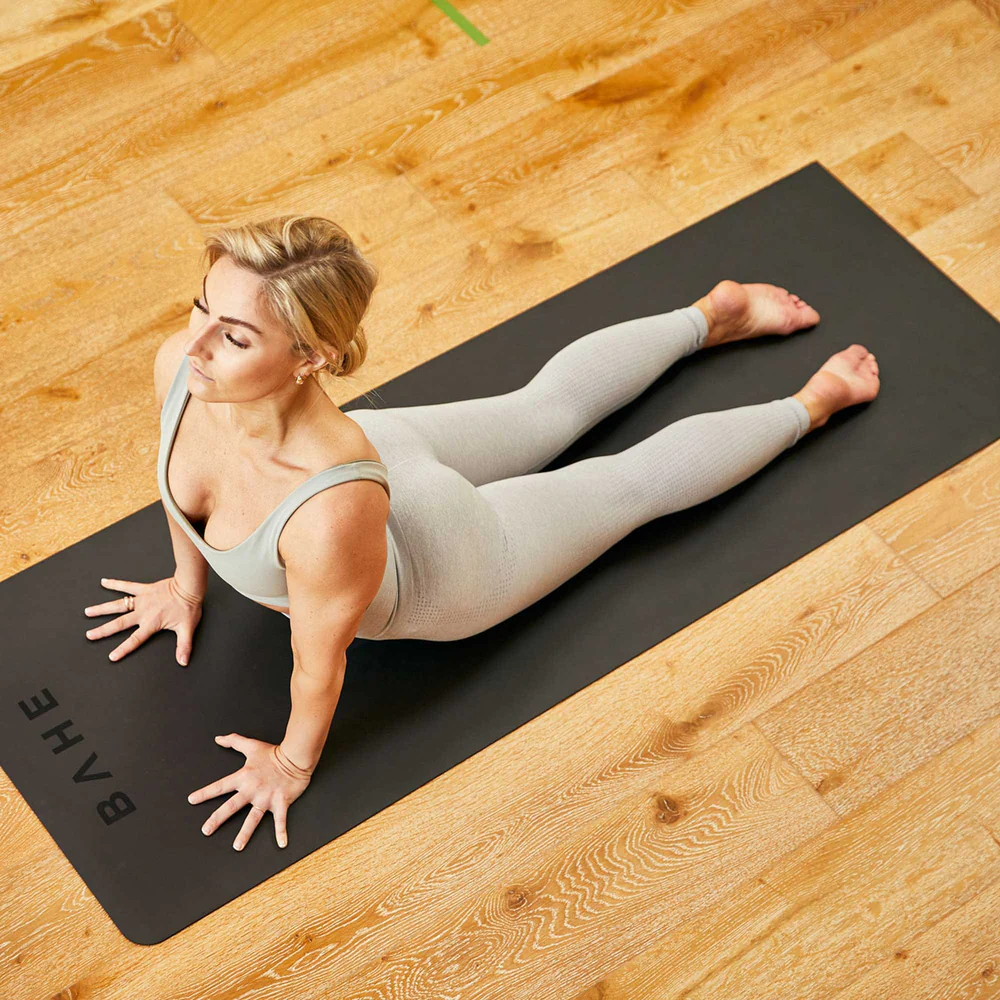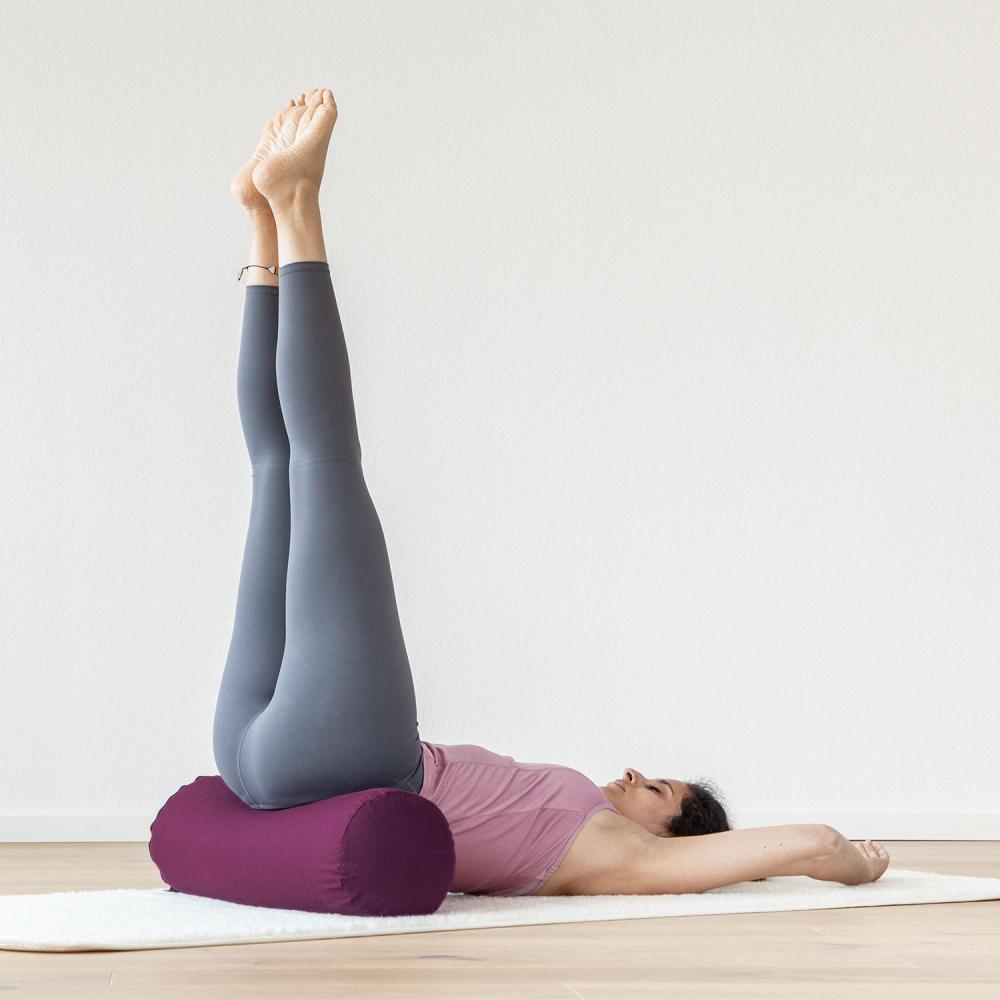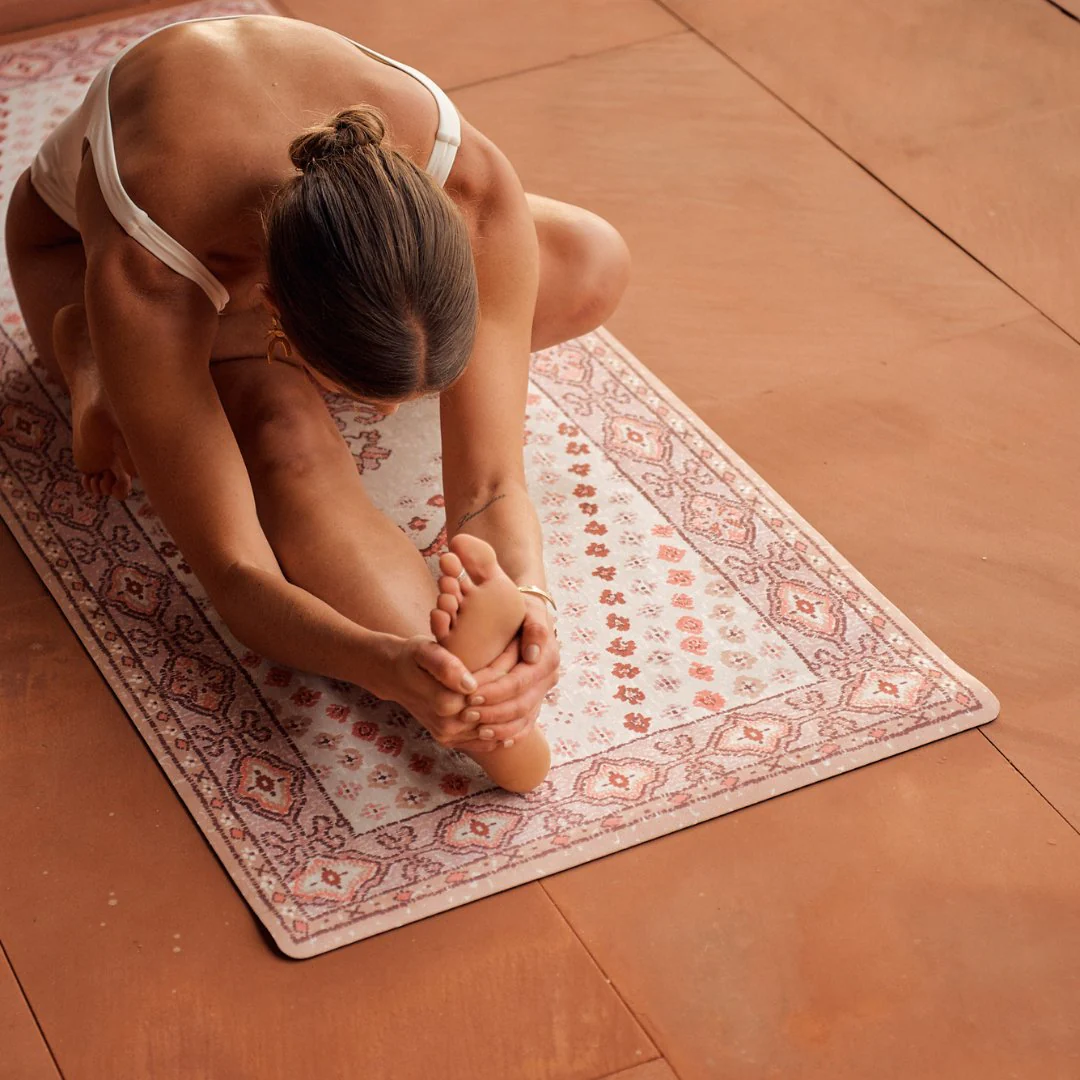Introduction to DIY Yoga Mat Sprays
Creating your own yoga mat spray is rewarding and simple. With homemade sprays, you control the ingredients. This means you can avoid harsh chemicals often found in commercial cleaners. A DIY yoga mat spray also lets you personalize the scent. This adds an extra layer of enjoyment to your yoga practice.
Regular cleaning is essential for any yoga mat. Sweat, dirt, and oils can build up over time. This can make your mat a home for bacteria. A good spray keeps your mat fresh and hygienic.
Making your spray only requires a few natural components. Essential oils, witch hazel, and distilled water are the basics. Essential oils give your mat spray antibacterial properties and a pleasant aroma. Witch hazel serves as a natural disinfectant without harming your mat’s material.
In this blog, we will explore how to combine these elements. We provide a step-by-step guide and suggest blends to suit your preferences. We also touch on the importance of regular mat cleaning and offer tips for storage and maintaining the quality of your spray.
Embrace the idea of a yoga practice that includes a mat that’s clean, naturally scented, and energetically aligned with you. Let’s get started with crafting your homemade yoga mat spray.
Importance of Cleaning Your Yoga Mat
Keeping your yoga mat clean is crucial for your health and practice. Regular use can cause sweat, oils, and dirt to accumulate. This not only affects your mat’s appearance and grip but can also lead to unpleasant odors. Moreover, an unclean mat can become a breeding ground for bacteria and germs.
Cleaning your mat with a homemade yoga mat spray adds freshness and hygiene to your routine. A spray made with natural ingredients like essential oils and witch hazel can disinfect your mat effectively. Plus, choosing natural ingredients ensures you are not exposing yourself to harsh chemicals during your yoga sessions.
A clean mat can also improve your yoga experience. It helps you focus better and enjoy a sense of well-being. Knowing you’re practicing on a clean surface can enhance your peace of mind. A good clean preserves the mat’s life, maintaining its cushioning and support.
In short, using your DIY spray regularly keeps your mat in top condition. It also supports a healthier yoga environment. We will cover how to make and use your homemade spray in the following sections.
Natural Ingredients for Your Homemade Spray
Choosing natural ingredients for your yoga mat spray is both safe and effective. This section explores essential oils and witch hazel, key components of a health-friendly spray.
Essential Oils and Their Benefits
Essential oils are more than just pleasing scents; they’re powerful antibacterial agents. Popular choices include tea tree oil, known for its antimicrobial properties, and lavender, loved for its calming effects. Eucalyptus oil offers both a fresh scent and cleansing abilities, while peppermint can invigorate your senses during your yoga practice. Using these oils in your spray not only keeps your mat clean but also enhances your yoga experience with their aromatherapeutic benefits.
Witch Hazel: The Natural Disinfectant
Witch hazel is a natural choice for disinfecting without damaging your yoga mat’s material. It’s gentle yet effective, making it perfect for regular use. As a bonus, witch hazel does not leave a residue and helps to preserve the integrity of your mat over time. Incorporating witch hazel into your homemade yoga mat spray ensures a non-toxic, environmentally friendly cleaner that supports both your wellness and your yoga practice.
Step-by-Step Guide to Making Yoga Mat Spray
Creating your own yoga mat spray is easy and effective. Here’s a detailed guide to help you through the process.
Selecting Your Essential Oils
Choosing the right essential oils is crucial. For a homemade yoga mat spray, select oils with antibacterial properties. Tea tree oil is a great choice for its antimicrobial benefits. Lavender oil adds calming aromatherapeutic effects. Eucalyptus oil provides a refreshing scent and cleansing capabilities. Peppermint oil can invigorate your senses and enhance your focus during yoga. Consider your scent preferences and the benefits you desire when choosing your oils.
Mixing the Ingredients
To make the spray, you will need a clean spray bottle, preferably glass. Start by filling half of the bottle with distilled water. Add witch hazel until the bottle is nearly full, leaving room for the essential oils. For a standard 8 oz bottle, adding 3-5 drops of each selected essential oil should suffice. Close the bottle and shake well to mix all the ingredients. Your homemade yoga mat spray is now ready to use. It’s simple, natural, and beneficial for regular yoga mat maintenance.
Customizing Your Spray: Aromatic Blends for Every Yogi
Making a homemade yoga mat spray is not just about clean mats. It’s also about creating a scent that will complement your yoga experience. Everyone has different preferences when it comes to aromas. This is why personalizing your spray with various scent blends is exciting for yogis. Different essential oils offer different mood and health benefits, making your spray truly unique.
Basic Recipes and Variations
Let’s start with a simple recipe. Combine 10 drops of tea tree oil for its cleansing properties with 10 drops of lavender for a soothing effect. For a refreshing spray, blend 10 drops of eucalyptus oil with 8 drops of peppermint oil. This mixture is perfect for a morning yoga session. To mix, fill your spray bottle halfway with distilled water, add witch hazel almost to the top, drop in your essential oils, and shake well. Experiment with oil amounts to find the strength of scent you like best.
Remember, different oils can provide unique benefits. Tea tree fights germs, lavender calms, eucalyptus refreshes, and peppermint invigorates. Feel free to try other oils like lemon for its uplifting properties or neroli for its stress-relieving effects. It’s all about finding what works best for you.
Zodiac-inspired Aromas for Personalization
Now, let’s dive into personalized scents based on the zodiac. Aries might enjoy bold scents like frankincense, bringing warmth and energy to their practice. Taurus could find comfort in the grounding aroma of patchouli. For Geminis, a mix of citrusy bergamot and uplifting spearmint could cater to their dynamic nature.
Cancers may appreciate the nurturing scents of chamomile and ylang-ylang. Leos could resonate with the confidence-boosting properties of cinnamon and orange. Virgo, the zodiac’s healer, might find eucalyptus and tea tree oils purifying.
For a balance-seeking Libra, the sweet harmony of rose and geranium can be appealing. Scorpios might be drawn to the intense and healing properties of myrrh and jasmine. The adventurous Sagittarius could go for the bright and expansive scent of sage.
Capricorns, who value stability, might prefer the steadfast scent of cedarwood, while Aquarians could enjoy the unique blend of peppermint and eucalyptus for their innovative spirits. Finally, Pisces could find solace in the dreamy and mystical combination of sandalwood and incense.
Crafting your yoga mat spray with these zodiac-inspired aromas can enhance your practice and reflect your personality. As always, ensure your blends are balanced and not overwhelming. A few drops of each oil should suffice to imbue your yoga mat with the desired qualities.
Application: How to Clean Your Mat with Your DIY Spray
Using your homemade yoga mat spray is both quick and effective. First, roll out your mat on a flat surface. Spray a light, even coat of your DIY cleaner across the yoga mat. Allow the mist to settle for a few seconds. Then, with a soft cloth, gently wipe the mat clean. For tough stains or areas with more buildup, let the spray sit a bit longer before wiping. Finally, hang your mat or lay it flat to air dry. Ensure it’s completely dry before rolling it up to prevent mold and mildew growth.
Best Practices for Mat Maintenance
Taking care of your yoga mat extends its life and supports a healthy practice. Here are best practices for mat maintenance:
- Clean after each use to remove sweat, oils, and dirt. This prevents bacteria growth and keeps your mat fresh.
- Let your mat dry fully after cleaning. This stops mold and mildew from forming.
- Store your mat in a cool, dry place. Avoid direct sunlight which can degrade the material.
- Roll your mat with the top side facing out. This keeps the corners flat during your practice.
- Avoid sharing your mat. This minimizes the spread of germs.
- Deep clean your mat monthly. This removes lingering dirt and maintains grip.
- Patch small tears quickly to prevent them from growing larger.
Following these steps will help to ensure that your homemade yoga mat spray is used effectively, and that your mat stays clean, safe, and durable for years to come.
Longevity and Storage Tips for Your Yoga Mat Spray
Ensuring your homemade yoga mat spray lasts long is simple with proper care and storage. Here’s how:
Avoid Direct Sunlight
Keep your spray bottle away from sunlight. Sunlight can break down the essential oils, reducing their effectiveness.
Use a Glass Bottle
Store your spray in a glass bottle. Glass preserves the integrity of essential oils better than plastic.
Keep it Cool
Find a cool, dry spot for storing your spray. Heat can alter the spray’s properties.
Tighten the Lid
Always tighten the lid after use. This prevents the spray from evaporating.
Regularly Shake the Bottle
Shake the bottle before each use. This keeps the essential oils and witch hazel mixed.
Refresh the Batch
Make fresh batches of your spray every few weeks. This ensures potency and effectiveness.
Label Your Spray
Label the bottle with the making date. This helps you track its age and freshness.
Store your homemade yoga mat spray correctly and it will serve you well, keeping your practice clean and aromatic. Remember, a fresh spray enhances the health benefits and pleasure of your yoga sessions.
Conclusion: Embrace the Benefits of a Custom Yoga Mat Spray
In conclusion, creating your own homemade yoga mat spray comes with many benefits. It’s simple to make and ensures your mat stays clean and fresh with natural ingredients. With essential oils and witch hazel, you can craft a spray that disinfects effectively while being gentle on your mat. Plus, the custom scents add a personal touch to your yoga practice.
Remember to clean your mat after each session to keep it in top shape. Store your spray properly to maintain its quality. Regular upkeep with your DIY spray contributes to a healthier practice environment. Take pride in using a product you’ve made that supports your well-being and yoga journey.
By crafting and using your custom yoga mat spray, you gain control over the ingredients and fragrances that surround you during your practice. Embrace the mindfulness and satisfaction that comes from this simple and rewarding DIY project.


